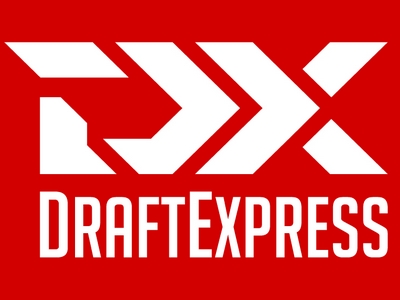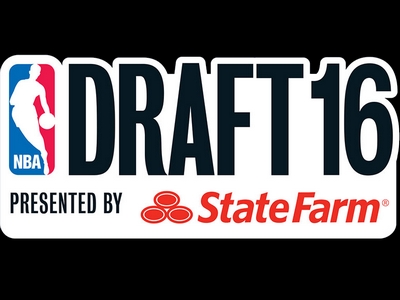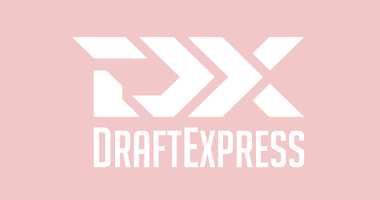Just a few years ago it looked like international players were about to take the NBA by storm. No less than 49 international players were drafted between 2002 and 2004, while players like Nenad Krstic and Carlos Delfino came to the NBA and essentially played for free (to satisfy their buyout) just to get their foot in the door with the best league in the world.
All that is starting to change now. Out of the 60 players drafted this past June, only one international player without NCAA experience, Johan Petro with Seattle, is guaranteed to be on an NBA roster this season. Others, like Ian Mahinmi, Mile Ilic, Mickael Gelabale and Erazem Lorbek will be stashed overseas by their teams to let them continue their development and save cap space and/or a roster spot. The future of other teenage project players who might be interested in adjusting themselves to the NBA, like Yaroslav Korolev, Martynas Andriuskevicius and Ersan Ilyasova, is still up in the air.
Something that NBA teams have not be prepared for is the possibility that their draft picks might just not be that enamored with making the jump to the NBA as they might have been in the past, and would do the unthinkable and downright snub them in the process. To emphasize that possibility, two European draft picks this week, Fran Vazquez and Roko Leni-Ukic, both unilaterally decided to pass on contract offers from their respective NBA teams and have signed lucrative deals in Europe instead. On a somewhat related note, Peja Drobnjak signed a fairly large deal in Spain this week as well, while passing up on NBA offers from playoff teams in the process. This is something that we havent really seen happen in the past, and should probably be considered somewhat of an alarming potential trend for NBA teams considering selecting European players in the future. It's at least something that needs to be looked at and addressed.
The main problem is that every year that passes by, the odds of teams reeling these players back into an NBA uniform decrease, especially for former first round picks like Vazquez. The Spanish big man and #11 pick, for example, is already 22 years old and has signed a four year deal with Girona from Spain, for a supposed 10 million dollars Net. Gross or net, the money he is reported to be offered by Girona right now is already a lot more than what his first year NBA salary with the Magic would be, should he ever decide to come over. If Girona is pleased with him after two or three years, they could terminate the remaining years of his contract (which are already way more than what the Magic can legally offer) and sign him to a new deal with more guaranteed years. Even if they dont, it has to be alarming for the NBA that at his age Vazquez has already been offered more than three times the amount he could ever legally be offered by the Magic in NBA terms when stacking the numbers up side by side (this will be explained later on).
There is simply no way for the NBA to compete with that at this point with the rules that are currently in place. The name of the game for basketball players and their savvy agents, in any league, is financial security. If someone is offering them more money for more guaranteed years to play a bigger role for their team, would they really be smart to turn that down?
For his agent in Spain, Gorka Arrinda, it would make absolutely zero sense, that much is for sure. As one prominent American agent told DraftExpress in response to this issue: Fran's Spanish agents will make a good amount of money for him staying there whereas they would make nothing if he came to the NBA. That is the sad statement on international players in the NBA.
Agents in Europe usually receive 10% of the contracts they land their players, with the money being paid by the team to the agent and considered a separate part of the transaction, and not deducted from the money they pay the player for the contract. Had Arrinda sent Vazquez to play in the States, he would have made significantly less, maybe even nothing depending on the agreement he has with Fran. Per the NBPA agreement, NBA players are only allowed to pay their agents a maximum of 4.5% of their contract if a separate management deal isnt worked out (it is apparently rare in instances like this for one to be put in place). Since Vazquezs agent hired an American counterpart, Marc Cornstein in this case, to do the legwork in the United States, he likely would have had to, at best, split the 4.5% agent fee over the life of the NBA contract in half with him. We dont know the exact terms of the agreement the three parties had, but in general this is a relevant issue to discuss for the future. The problem is that its becoming more and more normal now for agents to either not bill their clients altogether for their rookie contract, or only bill them for the difference between the minimum amount the client can be signed for, 80% of the rookie scale, and the maximum amount allowed, which is 120%. Since more and more agents are using this tactic to stay competitive in an already cut-throat business, its even become expected to offer that even though the leg-work for getting a European player drafted is usually considerably more than a comparable NCAA player. If the player does not come over to the NBA, the American agent can completely be left out to dry. Using the Vazquez example once again, and guesstimating the numbers based off what we know from the past, his agent is in a position where he would be making approximately 10% of his clients contract in Europe, in the area of 1 million dollars with the money Vazquez is rumored to be signed for over the next four years in Girona, or as little as zero had his client came to Orlando to play in the NBA instead. That is had he agreed to waive the agent fee altogether like many agents do these days on NBA rookie contracts. The most we think he could make regardless had he not waived the fee is somewhere in the area of $150,000. Anyway you slice it that is a lot of money to turn down, especially when his player will be given a lot more money to play more minutes on a good team in his home country while only needing to play 34 games in Spain as opposed to the 82 in the NBA. Its a no-brainer really for all parties involved when you put the NBA dream sentiments aside.
Some would say that the writing was on the wall months ago regarding Vazquez. As we reported over 7 months ago, he was talking with Real Madrid about signing a long term deal with them already back then. There were similar discussions rumored in Spain and amongst people in the know in the States as late as early in the month of June just a few weeks before the draft. Some eyebrows were raised about the fact that Vazquez decided not to come workout for any NBA teams after his season in Spain was over in early June, citing exhaustion and stating through his agent that he had already proven enough. Clearly he wasnt as enamored with the prospect of playing in the NBA as most American fans would expect him to be considering the esteem in which they hold their league in.
How could this be?
Well, there are a number of ways to explain this. The obvious one is that the NBA just isnt as glamorous and mysterious for foreign prospects as it used to be 5-10 years ago. American national teams compiled of NBA stars have been beaten time after time by their European and South American counterparts in international competitions such as the Olympics in Athens and World Championships in Indianapolis. Elite European teams have wised up to the fact that its best prospects are being stolen from right underneath them, while they receive little to no compensation in return for developing them, and have decided to fight back. This is a natural evolution that has spawned as a direct response to the direction that their player market has taken over the past few years. We can only expect European teams to make things even tougher for their NBA counterparts over the next few years, because this is a direct threat on their livelihood, especially from a marketing perspective when you consider that these are their brightest young stars who are leaving to be marginal players in the NBA. Although the budgets of even the top teams in Europe appear to be as little as a quarter to a fifth of NBA budgets in some cases (although these numbers are misleading as we will explain below), they have no salary cap and very little restriction on player movement. They can also pay off any buyout amount needed to get a player out of his contract and onto their roster, while NBA teams can only contribute $500,000 (according to sources) under the yet-to-be-signed CBA. While NBA teams only offer two years of guaranteed money to first rounders under the new CBA, teams like Tau Vitoria, Real Madrid and now Akasvayu Girona for example can offer as many guaranteed years as they like, while always having the option of tearing up a contract after a few years, in if both sides agree, and striking a new deal that pleases all sides. NBA teams once again just don't have that luxury, as there is no restructuring of contracts once they are done, except for in very rare instances which dont really apply here. Once teams with seemingly endless budgets, like Russian oil fueled CSKA Moscow (with a reported budget in the neighborhood of 20-25 million dollars) get into the mix, the landscape is going to change altogether, as the market in Europe has already found out over the past few years.
Now, the earning potential for European players in the NBA once they reach their 2nd contract is definitely higher than had they stayed at home, but they still have to play well until that point to strike gold and earn that mammoth multi year contract for the MLE, or hopefully a lot more. These are the contracts that all young players and their agents covet when they get drafted, but, the more surefire money and playing time that is thrown at them early on from Europe before they make the jump over, the more players you will see settling for just being set for life and living comfortably, while staying at home and still making pretty damn good money themselves. We could reach a point where only the really ambitious and most talented players make the jump over at a young age, while the trend weve seen this summer of signing proven European players in free agency (like Jasikevicius, Macijauskas, Oberto, etc) later on in their careers is likely to increase.
The second reason why European teams are increasingly able to compete with the NBA, is the fact that the money that players actually pocket from European contracts is often almost twice as much as a player would take away from an NBA contract for the same amount. Unlike NBA contracts, whose numbers are reported in the media before local, regional, state and federal taxes take their cut, European teams are the ones that take care of their players taxes, so that almost all of the money that they have been reported to sign for goes straight to their pocket. The Federal Income tax (which takes as much as 35% for the top 1% of income makers in the United States), State Income and Property taxes, all take their tolls. Thats not the only cut that NBA players see taken out of their contract. The escrow tax (which potentially cuts out as much 10% of a yearly NBA salary) also takes its toll if the leagues total earnings dont exceed a certain amount. This money goes right back into the owners pockets. While none of us are shedding any tears over them at the moment, NBA players essentially only see about 50% of their actual contract amount and sometimes even less depending on the state they live in and whether or not the NBA Escrow tax kicks in.
On the other end of the spectrum, contracts in Europe are signed and reported in NET amounts, as opposed to GROSS. Just for clarification, Gross pay is the total amount of money paid out for a period before deductions, reductions and taxes have been subtracted. Net pay is the take-home pay players see after reductions, taxes and deduction have been subtracted. What this means is that players in Europe get almost the exact amount of money that the contract is signed for into their pocket, while the taxes are taken care of by the team. They also often get a car and even an apartment on top of that while they are with the team, so we are talking about an even bigger advantage financially to take the European contract. Some players (especially American import players, but not just) also get other perks like a phone and almost unlimited long distance calls, along with maybe a dozen open-ended plane tickets per season to fly back to visit their home country or bring in family members to visit them if they please.
What this means is that if a player like Toronto draftee Roko Leni Ukic signs the 4 year, 3 million dollar contract he was reported to have landed in Europe with Tau Vitoria, that contract amount in NBA terms would actually be 4 years and between 5-6 million depending on the NBA team Tau Vitoria is competing with (a contract the Miami Heat offer for example is worth more than a contract the Raptors offer, because of the tax structure in Florida as compared with Ontario). Tau will also be responsible for paying his 700,000 Euro buyout ($850,000) to his former Croatian club KK Split, instead of the Raptors paying $500,000 and Ukic taking care of the other $350,000 himself. As Raptors GM Rob Babcock said himself, Ukic wouldnt actually be making any money playing in the NBA in his first year with what they offered him. Not to mention the fact that he will instead be starting for the team that finished 2nd last year in the Euroleague as opposed to most likely being the 3rd string PG off the bench for a perennial lottery bound team in the Toronto Raptors.
Another reason for the decline in interest that might be expected in the future from international prospects is the lack of success that many players have seen in the last few years. One prominent American agent said it best in response to this article: The key point is these players are not stupid ... they don't just want to "be" in the NBA, they want to "play" in the NBA. The NBA is arrogant in the sense that they think these kids all are dying to be in the NBA ... they are not.
An NBA scout we approached voiced similar, but different thoughts: Yes it's becoming more and more difficult to compete with some of the top European teams, as far as money, buyouts and terms of the contract, but still that's not the main factor. I think that it has to do more of getting the opportunities to play and have a role in a team. I still believe strongly that every player in Europe looks at the NBA as the best league in the World and that one day they want to compete in it. However when you see players like Delfino, who by the way in my eyes isn't a NBA prospect, getting screwed over after giving up money to chase his dream and an Ukic, who in my eyes is absolutely not ready for the NBA, getting promised to be a first round pick and finding himself halfway down the second round by the same team who promised him, you can understand that those players dont have much interest in playing in the NBA, at least not for the next 3-4 years. EGO is a bigger thing than money, especially at a later age, the same with NBA stars like a Karl Malone.
The reason why many unproven Europeans saw their stock drop like a rock in this past draft also could be causing other European players to rethink whether or not they want to leave the cozy confines of playing in their home country, which speaks a language they can understand clearly and subscribes to a culture they can immediately relate to. It wouldnt be a stretch to say that European prospects that have yet to make the jump are looking at the way the Darkos and Skitas of the world have fared, and at the same time wondered if they are next. Those two are the most popular cases to pick on, but there is no shortage of players such as Sasha Pavlovic, Zoran Planinic, Boki Nachbar, Jiri Welsch and many others who either didnt get the playing time they needed in the NBA to develop or just couldnt translate their game to the NBA when they did. These are all players that are on the verge of possibly being out of the league in the near future, and when they go back to Europe, the money just might not be there anymore while their skills have eroded after sitting on the bench for so long. Dalibor Bagaric is a prime example of that, and while he is slowly returning to form, there is no doubt that he will never be able to make up for the crucial years he spent rotting on the bench in Chicago. NBA fans will laugh at some of these names, but the importance of getting playing time and building up confidence at such a young age is something that just cant be underestimated when you are talking about players who never really were stars in their own country anyway and have little to fall back on resume wise when their confidence leaves them (sometimes for good).
The bottom line here is that the players ego and future earning potential are at a major risk of taking a major hit should they come to the States and fail to make their presence felt. Both Roko Leni Ukic and Fran Vazquez had to choose between starting for an excellent team in the 2nd best league in the world, or settling for a minor role (at best) coming off the bench in the NBA.
So what does this mean for the future of the NBA draft as it pertains to international players? Only time will tell really. What is definite is that the new CBA agreement which will be signed any day now is a huge victory for European teams in their quest to hold on to their homegrown talent. The NBA stopped short of raising the amount teams are allowed to pay for buying out contracts to anything substantial that will actually compensate teams for what they have put into the players they are losing. The old amount which was in place for years (and years) was 350,000$. This figure has only been raised to $500,000, a sum that is still completely out of whack with reality considering the financial landscape of the European market at the moment. On top of that, NBA contracts for 1st rounders can only be guaranteed for two years (although nothing is stopping teams from fully guaranteeing all four years from the get go), further weakening the ability of players to pay for their buyout amount from their European clubs when it exceeds the $500,000 allowed. As it stands right now, NBA teams are still in good shape to snatch up younger prospects from Eastern European countries that have not yet made a dent on Europe in terms of what they have accomplished when theyve been drafted, considering that the only teams that can compete with them financially are the very richest teams in Spain, Italy and Russia. Teams like Panathinaikos in Greece and Maccabi Tel Aviv in Israel could also make an impact here if they felt inclined to do so. These teams are usually not interested in upside players, at least not for those types of sums. They need to win, and win now, which is why even proven players like Vazquez and Ukic have only been marginally interesting to them up until now.
The problem is that, judging by this past draft, even NBA teams appear to be shying away from taking unproven players the way they used to in the past. They will have to either take them early enough in the draft to place them favorably on the rookie scale and ensure that their bid and playing time situation will trump what the Europeans can offer, or bring the players over when they are young enough that the players in question will be able to afford taking that type of risk before they get locked down and settled in their country of choice. Otherwise it won't be as easy to uproot them from the comfortable situation they are in, and it just wont make as much sense for them financially either if they are being offered large guaranteed deals from top tier European clubs on the side.
We may reach a point sometime in the future in which, considering the risk and especially the shame involved of coming away with absolutely nothing, it will make little sense to draft a European player earlier than the top of the 2nd round, in which case the teams and players are free to negotiate any kind of contract they want, based on their true market value rather than a seemingly arbitrary rookie scale.
For example, the Spurs drafted Ian Mahinmi and plan to stash him in Europe for a couple of years. There is a possibility that if they dont bring him over within the next two to three years, and he improves substantially in the meantime, he could very well garner larger contract offers in Europe as a 6-10 athletic shotblocker with a French passport and price himself out of the #28 salary spot (currently $700,000 or $350-400K in European terms) he is slotted in right now. Since he is 18 the Spurs have a fairly large window of time to work with, but if they had tried the same tactic with their late first round pick last year, Beno Udrih, that plan may have backfired. Carlos Delfino has clearly been burned already being in a similar scenario to what we are discussing here. He came over last year and essentially volunteered to play for free for the Pistons and be humiliated (at least in his eyes) by Larry Brown. Not only has he lost money in the process, he is not getting any better as a player if what we saw in Summer League was any indication. Nenad Krstic still hasnt made a dime from his NBA adventure, but he at least appears to be in good shape to cash in on his second contract with the Nets when that rolls around in 3 years (and hes 25). He took a big risk, but one that will likely pay off for him and in a big way if everything goes as planned over the next few seasons. Looking at what he is making right now and just how damn good he looked towards the end of the year, it's hard not to say that he is to New Jersey what Karl Malone was to the Lakers two years ago with the money he left on the table. Had he stayed just one more season in Europe before having to decide whether to make the jump over to the NBA this summer or not, it wouldnt be a stretch to say that he would have received similar offers like the one Vazquez received from Girona considering the type of prospect he is. Krstic essentially would have had to decide between playing for free for his first season in the NBA or turning down three or even four times the amount of money hell make over the course of his NBA rookie contract from interested European parties.
Its definitely a risky business involving what NBA teams are going to be going through when it comes to international players and the draft in the next few years. As usual, the good ones are going to be the ones that rise to the top.
Tables turning on NBAs relationship with Europe
Aug 01, 2005, 04:11 pm
Read Next...
-
Jun 24, 2016, 04:30 pmThanks for following the 2016 NBA draft with us. It was a wild and unpredictable night. The process of evaluating the 2017 NBA draft has already started.
-
Full Results of the 2016 NBA Draft - Picks and Trades
Jun 24, 2016, 10:45 amA full breakdown of every pick in the 2016 NBA Draft, from 1-60, including all trades that occurred.
Recent articles
12.4
Points
5.2
Rebounds
0.9
Assists
22.0
PER
9.3
Points
4.8
Rebounds
2.6
Assists
12.4
PER









































Comments